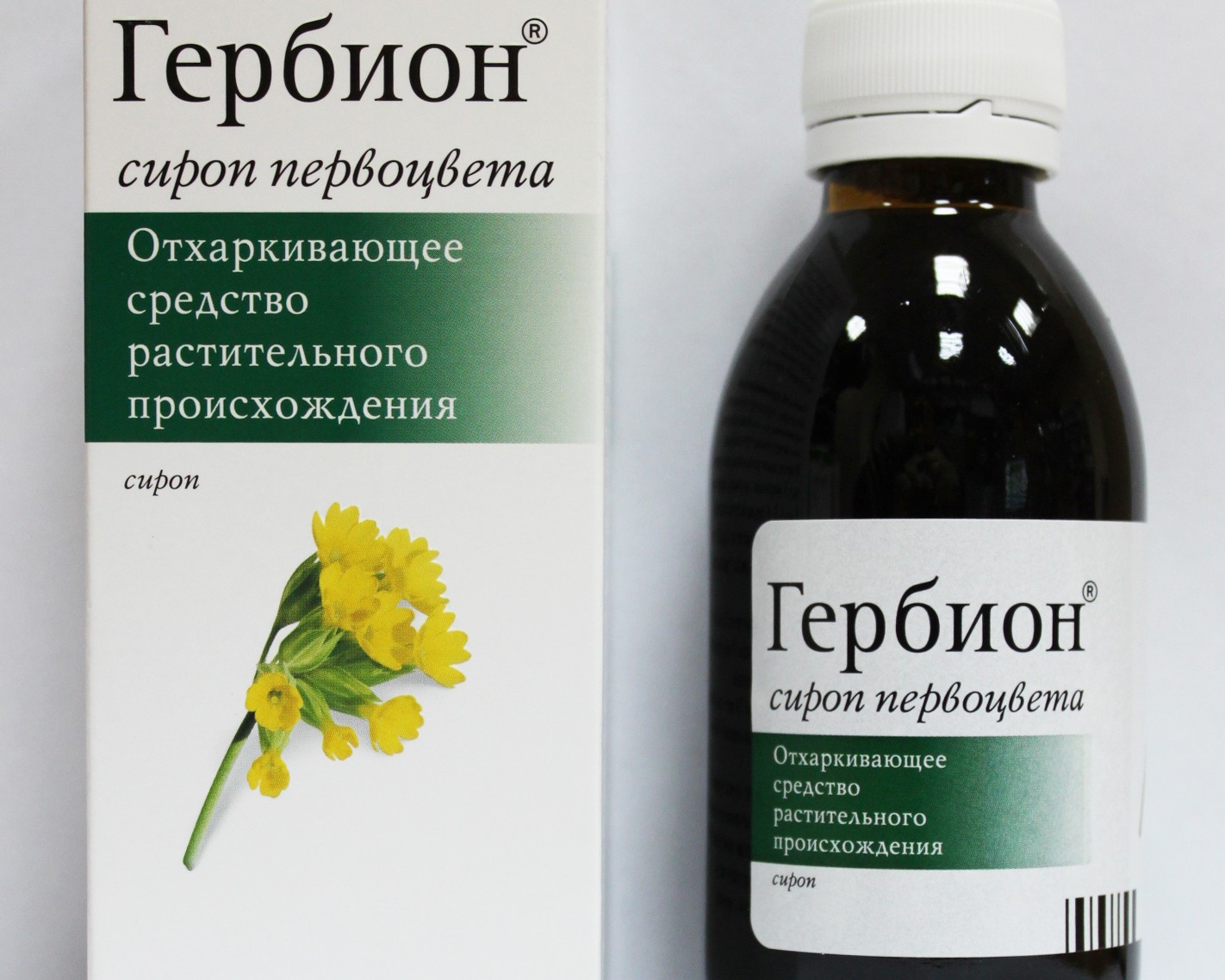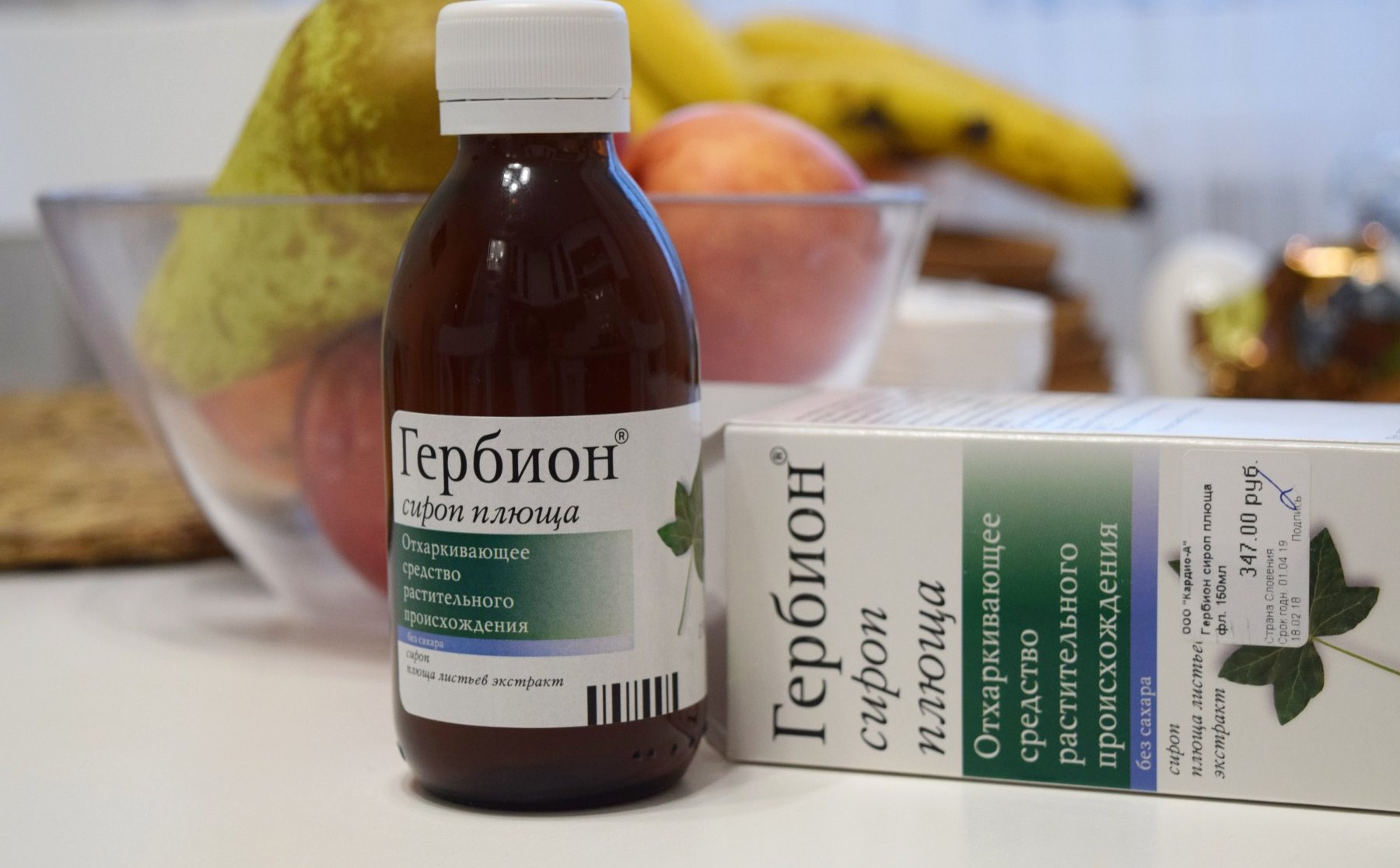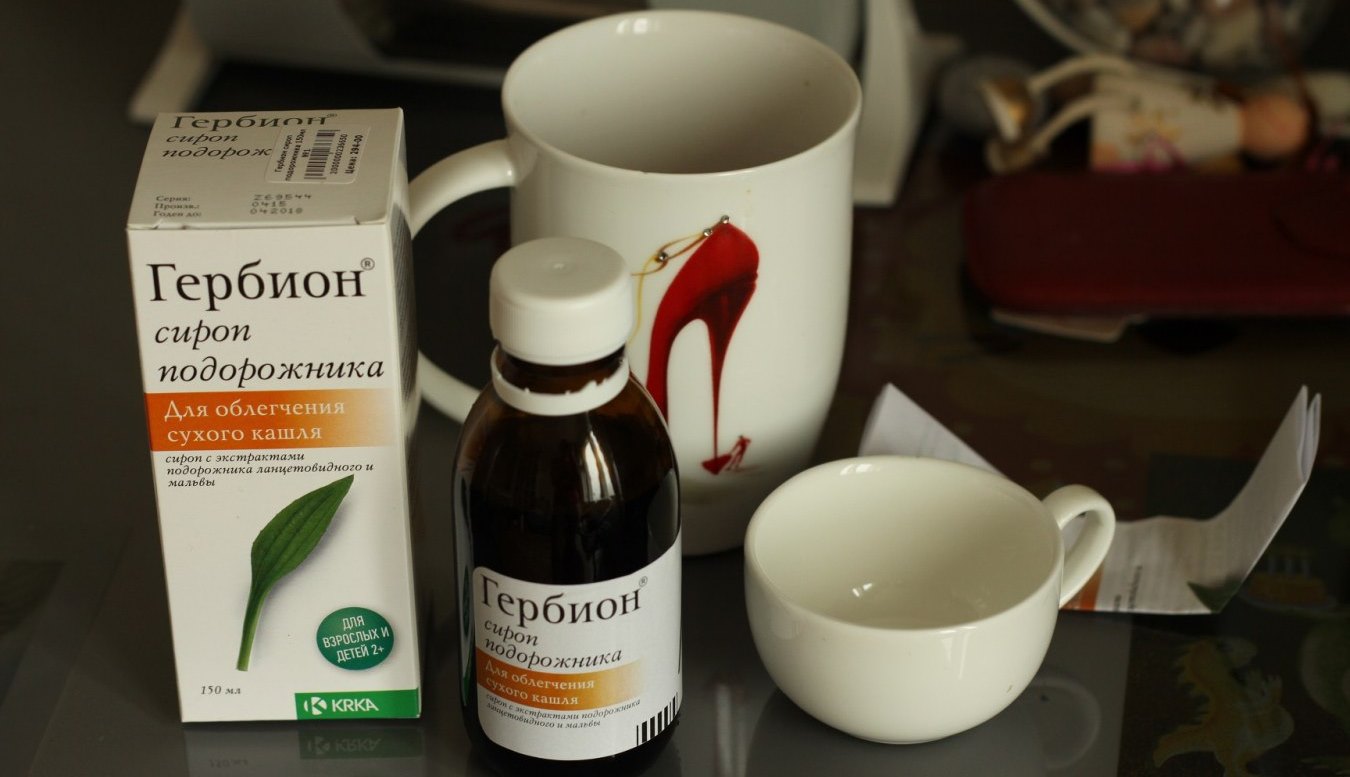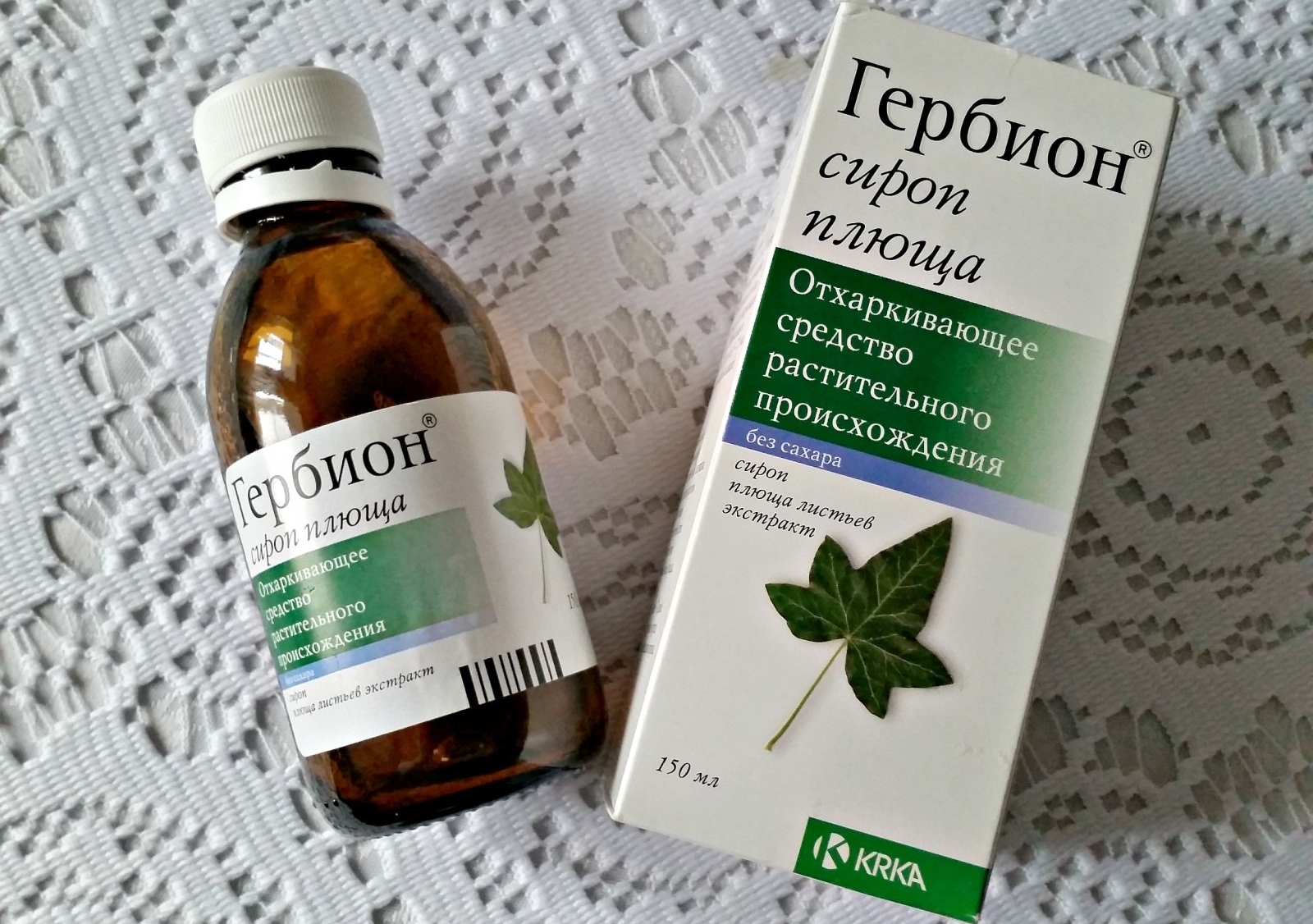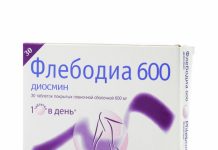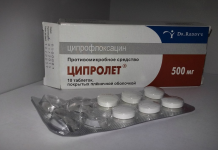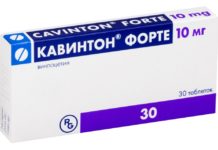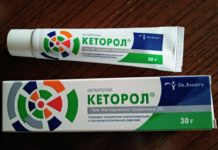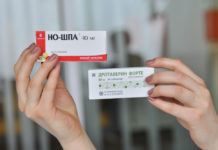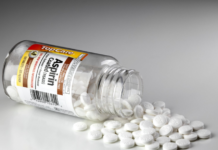Cough is a natural mechanism that is aimed at protecting the body. However, in the absence of the necessary treatment, it can provoke the development of a chronic respiratory disease. Therefore, experts recommend the use of various syrups for sputum discharge. A proven and reliable tool is Herbion from a wet cough, made on a plant basis.
Material Content:
Composition, active ingredient of Herbion for wet cough
The line of Herbion syrup for wet cough includes several varieties that differ in the basic active ingredient. Herbion primrose syrup is developed on the basis of the following components:
- The central active compound is the primrose root extract, which contains essential oils, carotene, vitamin C and glycosides.
- Organic plant extract also contains saponin, which is able to improve the adrenal glands and remove toxic substances.
- Thyme helps to reduce the viscosity of the pulmonary fluid, and also activates the bronchi. It has antispasmodic and analgesic effects.
- Menthol - relieves inflammation, freshens breath, enhances the antimicrobial effect of thymol.
The main active ingredient of ivy syrup Herbion is also represented by a plant extract - extract from ivy leaves.This component contains a large number of useful components, including tannins, alpha-gederin, hederacoside C. In addition to the main substances, both syrups have additional compounds: ascorbic acid, sorbitol (liquid), orange oil, pantoshninin glycoside.
Russian analogues of primrose and ivy for children
Qualitative structural analogues are a worthy alternative to this mucolytic drug. Synonyms have a similar component composition, as well as pharmacological effects. Today there are a fairly large number of pharmaceutical products that can compete with Herbion syrup.
- Gedelix - contains a valuable extract of ivy leaves, is allowed for use in infants.
- Thyme with Vitamin C - allowed for use from the age of four, contains thyme and primrose extract, has anti-inflammatory and expectorant effects.
- Licorice syrup - allowed for therapeutic treatment by a patient younger than two years old, the main indication is a wet cough with sputum that is difficult to separate.
- Marshmallow - a natural plant syrup contains the marshmallow root, has bronchocretory and enveloping properties, subject to the required dosage, the drug has no age restrictions.
To correctly determine the treatment regimen for a child, it is recommended to consult a pediatrician.
Similar Sputum Syrups for Adults
An effective drug on a plant basis is Bronchofit syrup. The product contains calendula flowers, linden, licorice root, calamus roots, mint leaves, sage and chamomile. Able to exhibit antispasmodic and anti-inflammatory properties. As a rule, the medicine is recommended for bronchitis and pneumonia, since it effectively enough stops swelling and cramping. Gederin, a syrup based on dry ivy extract, is also often prescribed. Eliminates the inflammatory process and is used in the case of chronic diseases.
Natural antitussive medicines also include such means: Cook syrup, Prospan, Linkas, Doctor IOM, Mukaltin, Bronkhofit, Stoptussin-phyto. Quite often, experts prescribe no less safe drugs of synthetic origin. Such mucolytic drugs include Ambroxol, Lazolvan, Glyciram, Thermopsis, Ascoril. As a rule, these therapeutic medicines are used as complex therapy for eliminating sputum.
Foreign drug substitutes
A well-known foreign analogue is the drug Bronchipret, which is prescribed for the treatment of various pathologies of the respiratory tract complicated by viscous sputum. This tablet contains primrose and thyme extract. It has a number of contraindications. Another fairly common drug is Acetylcysteine, known as ACC. This mucolytic is prescribed for better discharge of bronchial secretion. Under its influence, liquefaction of mucus and its components occurs.
Ambrobene also refers to synonymous drugs of synthetic origin. The mechanism of action of this well-known mucolytic agent is directly aimed at the implementation of the secretolytic effect. In addition, this medication in the shortest possible time stops the signs of inflammation and helps to increase the immune defense. Ambrobene has antioxidant properties, due to which the effect of antibiotic drugs increases.
Instructions for use of an expectorant
The exact dosage is recommended to be established with your doctor. An expectorant should be taken after meals. In a measuring spoon - 5 ml of syrup. According to the instructions for use, the standard treatment regimen is as follows:
- Adults need to take 15 ml three times a day.
- Patients from two to five years old take 2.5 ml three times a day.
- Children from five to 14 years old - 5 ml three times a day.
- Adolescents over 14 years of age are shown 4 times a day for 10 ml of Herbion syrup for wet cough for children.
The duration of therapeutic treatment can be up to three weeks. Not effective for dry cough.
Contraindications, side effects and overdose
This drug is dispensed in a pharmacy without a prescription from a doctor, so patients should be familiar with contraindications to syrup. Given the presence of a plant component in the composition, an absolute limitation on the use of Herbion syrup for wet cough is a tendency to allergic reactions. In addition, syrup can not be used if:
- fructose intolerance;
- inadequate reaction of the body in the form of an allergy to certain components of the drug;
- lack of sucrose-isomaltase;
- concurrent therapy with medicines that contain codeine;
- breastfeeding and pregnancy;
- bronchial asthma;
- fructose intolerance;
- patient age up to two years;
- enzyme deficiency;
- diabetes mellitus.
As a rule, antitussive syrup does not cause any negative effects. However, in the case of an individual reaction of the body or improper treatment, patients may experience side effects: an allergic reaction, urticaria, redness of the skin, flushing, peeling, itching, burning, the appearance of vascular “stars”, bronchospasm. Adverse events may occur due to the use of the drug in excessive amounts.
Complications of an overdose can affect the digestive system: there are attacks of nausea, vomiting, diarrhea. To eliminate the consequences, the victim must stop treatment with syrup, take antihistamines and enterosorbents. In severe cases, medical attention and symptomatic therapy will be required.


